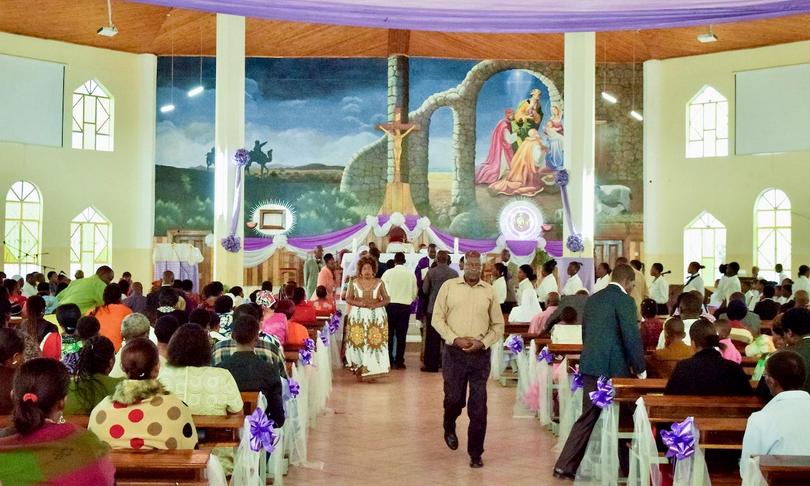Church leaders and Christians in Africa are mourning the death of Pope Francis, who died on Easter Monday, 21 April.
Francis, a former Argentinian Archbishop, then known as Jorge Mario Bergoglio, died at his residence at the Vatican. He was recovering after spending weeks in the hospital, undergoing treatment for double pneumonia.
From Juba to Johannesburg, his death sent shockwaves across Africa, the continent he visited five times in his 12-year period as the pope. Pastoral pilgrimages took him to 10 African countries, including the war-hit nations of South Sudan, Democratic Republic of Congo, Central African Republic, and Mozambique.
"Pope Francis was a true down-to-earth ecumenist who will be remembered for his commitment to working for justice and addressing issues in the world, as a fellow human," Rev. Dr Fidon Mwombeki, general secretary of the All Africa Conference of Churches, said. "He did not pretend to have answers for everything, but was ready to understand and walk with the people in their realities of life."
"Rest in eternal peace. You have done the world good," he posted on social media, soon after the pope's death.
Pope Francis embarked on his last trip to Africa from 31 January to 5 February 2023, which took him to the Democratic Republic of Congo and South Sudan. The former Archbishop Justin Welby of Canterbury and Rt. Rev. Iain Greenshields, moderator of the General Assembly of the Church of Scotland, joined the pontiff in a 3-5 February ecumenical pilgrimage of peace in the world's youngest nation.
Rev. Tut Kony Nyang, general secretary of the South Sudan Council of Churches, said the people were mourning the pope's death, but were also celebrating his extraordinary legacy and a life that touched many people through compassion and service.
"His unwavering commitment to peace, justice, and reconciliation has left an indelible mark on the world, and particularly in our beloved South Sudan," said Nyang in a condolence message on 21 April, which he cosigned with the council's chairman, Archbishop Justin Badi Arama of the Episcopal Church of South Sudan.
"We remember with gratitude and admiration his dedicated effort to promote healing and unity among our leaders and the people of South Sudan."
The cleric recalled that the pope had demonstrated profound humility and a call for true reconciliation when he humbly kissed the feet of the country's peace partners, whom he had invited to Rome.
"This moment will forever resonate in our hearts, as it reflected his deep love for our nation and its future," he said.
Nyang said the visit and his message of peace and reconciliation were a beacon of hope during that time of great need.
"His presence here inspired many and gave us a renewed sense of purpose in our journey towards lasting peace and harmony," he said.
Rev. Mzwandile Molo, general secretary of the South African Council of Churches, said Pope Francis is remembered for his commitment to interfaith dialogue and unity among diverse religious communities.
In 2019, alongside the Grand Imam Al-Azhar, Ahmed El-Tayed of Egypt, Pope Francis signed the document, "Human Fraternity for World Peace and Living Together," which condemned violence and extremism, affirmed the sanctity of life, and called for the protection of religious freedom and human dignity.
"This document dissolved the belief that God's name and teaching should be interpreted in acts of war and oppression," said Molo.
Originally from Webpage "The WCC"
CCD reprinted with permission












